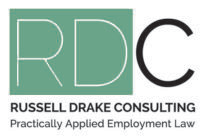Happy New Year from the team at RDC / EMA Waikato and we trust that you all had a great break – despite the adverse weather conditions.
As we now move into a New Year, within our first newsletter, we look ahead at the changes that will be occurring within employment law this year.
Fair Pay Agreements
With this piece of legislation having been passed into law in 2022, this year will see the commencement of the first Fair Pay Agreement negotiations. The Regulations that support the legislation are yet to be finalised and passed into law however we already have an awareness of how this new bargaining process is intended to operate.
Who (which business sectors) this will impact on in 2023 is largely unknown at this stage, with the process itself anticipated to be relatively slow as both sides of the table (Unions and Designated Employer Representatives) are expected to be cautious as they navigate the new process. Whether any Fair Pay Agreement negotiations will be concluded prior to the General Election in late 2023 is questionable, and what will happen to the entire process after the election if there is a change in Government is also open to speculation.
The primary sector to be effected this year looks to be Retail, however considerable debate will need to occur in the early stages of bargaining to define the scope of ‘retail’ as this will define whether particular businesses, or categories of work, are covered or excluded from any subsequent agreement. Many scenarios have already been discussed that suggest that accurately defining the scope of the retail sector will be a marathon exercise in its own right – and that is only one of the many challenges to be concurred if a Fair Pay Agreement is to ultimately see the light of the day.
Therefore, in 2023 at least, most businesses are unlikely to be affected by the implementation of the legislation with it largely dependent on whether any deal can get across the line prior to the election.
Holiday Act 2023
The current Act was passed into law in 2003 and has created confusion in a number of areas, specifically those associated with the calculation of leave entitlements. As a result of recommendations provided by the Taskforce Group (established by the Government), it is anticipated that the changes to the legislation will be presented to Parliament as a Parliamentary Bill, to then proceed through the Select Committee stage in early 2023.
All changes will then be subject to public consultation prior to and during the usual ‘reading’ stages in Parliament before being passed into law. There is general consensus also by all parties that the current legislation does require any amendments to the law, so the chances of this being passed into law this year are relatively high.
Primary to any change will likely be the following points:
- Clarifying the calculation method for leave with the proposal being for this to be the higher of Average Weekly Pay or Ordinary Weekly Pay over the preceding 12 month period.
- The entitlement for employees to take leave prior to completion of 12 months (already custom and practice in most workplaces)
- The removal of the ‘pay as you go’ leave provisions for fixed term agreements
- Employees returning from parental leave may be entitled to 4 weeks Annual Leave accumulation for the previous 12 months period despite their period of absence
- 3 days bereavement leave entitlements may be expanded to cover a wider of group of family members
- Employees may begin to accrue sick leave entitlements from the first day of employment
Additional changes may also be detailed when the Amendment Bill is presented to Parliament.
Minimum Wage
With the costs of living continuing to increase, it is anticipated that the Government will continue its trend of recent years to increase the Minimum Wage Rate further as of 1 April 2023.
The objectives of the Government were to get the Minimum Adult Wage equal or close to the Living Wage, however with the current minimum wage being $21.20 and the Living Wage being $23.65 the gap is potentially too great to bridge in a single step, without crippling many small businesses who are still trying to recover after the Covid-19 disruptions.
However, an increase of at least $1.00 per hour could be expected.
Continue to lookout for our regular newsletters throughout 2023, where we will aim to keep you well informed on all key aspects of employment law and employment relations, including significant Case Law from the Employment Authority and Employment Court, as these come to hand.
Please feel free to contact us on 07 838 0018 if you have any questions regarding employment law or employment situations where you require assistance.

